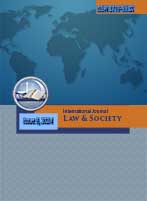The search for effective mechanisms to hold russia accountable for environmental damage
Keywords:
armed conflict; surrounding natural environment; right to a safe environment for life and health; damage to the environment; compensation commissionAbstract
The publication is devoted to issues of international legal regulation of bringing the russian federation to responsibility for damage caused to the environment. Within the framework of the declared topic, the norms of international contract law were analyzed and a conclusion was drawn about their ineffectiveness and non-priority for environmental protection during an armed conflict. It is substantiated that environmental protection during armed conflicts should be based not only on the application to the environment of the rules for the protection of civilian objects, but also on the recognition of the need to ensure special protection of the environment as such.
An important issue of the research is the search for a legal mechanism to ensure proper compensation for environmental damage, calculation of the amount of damage and an effective procedure for such compensation. The article outlines the main problems of the newest organisational and legal mechanism being formed in the state of Ukraine to ensure compensation for damage caused to the environment by Russia’s military actions.
A list of international judicial and quasi-judicial bodies that can extend their competence to consider such categories of cases is provided, and problematic aspects of the involvement of each of them are identified. The author analyses the prospects of establishing a compensation commission for Ukraine, as well as a fund to guarantee payments from, among other things, confiscated assets of the aggressor state, in order to compensate for the damage caused by the war, including environmental damage. The main problems accompanying any option for the creation and operation of a compensation commission are outlined (institutional capacity, i.e. proper determination of the jurisdiction of this commission; financing (supporting the commission’s activities by a special fund); timeliness (absence of a protracted procedure for consideration of a case, possibility of enforcement of the decision at the expense of a special fund)).


